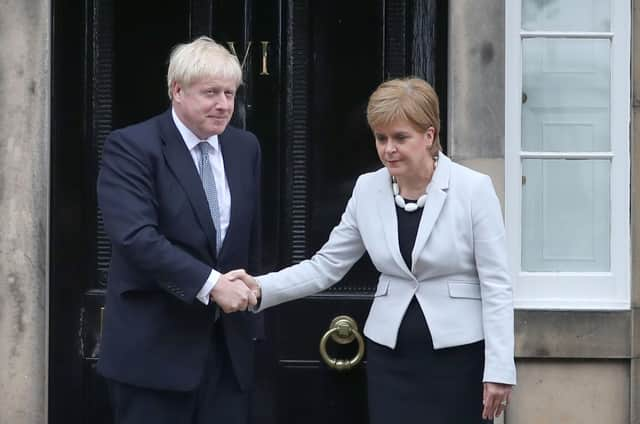Boris Johnson and Nicola Sturgeon must get beyond quarrels over invites for afternoon tea - leader comment


On Monday, the First Minister was keen to paint her offer of a meeting at Bute House as an act of magnanimity. Yesterday she described Boris Johnson' s refusal as "odd" and "strange" and "a missed opportunity".
It is unlikely the Prime Minister would agree. He would be keen to avoid the back door exit of his last visit to the New Town, made necessary by the presence of enthusiastic SNP supporters at the front of the building. And, before that, the prospect of a discussion about the merits of a second referendum would be unlikely to excite him either.
Advertisement
Hide AdAdvertisement
Hide AdIt is also heavily in the UK Government's interests to be seen as able - indeed, even willing - to come to Scotland when it wants, for instance to discuss the recovery from Covid or the COP26 climate summit in Glasgow later this year, without the event appearing to be a state visit. Staged talks between Prime and First Ministers would add a formality the UK Government is keen to avoid.
While the politicians fret about optics, we hope both governments mean it when they say they want to work together. For, whatever the timing and outcome of a mooted second referendum, there are (at least) years more of the status quo to come.
The First Minister may find that voters, cooling on another referendum, want a focus on post-pandemic economic regeneration as well as on long-standing problems in education, health and more. This may be tackled more effectively if done in conjunction, rather than in competition, with the rest of the UK. Blocking a shared approach might frustrate voters, especially if the rest of the UK recovers more strongly than Scotland.
The UK Government may, for its part, also find that collaboration is another way to show the Union in the best possible light. Working together would underscore the benefits of partnership more subtly than emblazoning directly funded initiatives with the Union flag.
For the rest of us, the only unacceptable outcome for Scots sat in the non-ideological middle of the constitutional debate would be if the people charged with making a difference failed to get beyond quarrels over invites for afternoon tea. We hope they manage more.